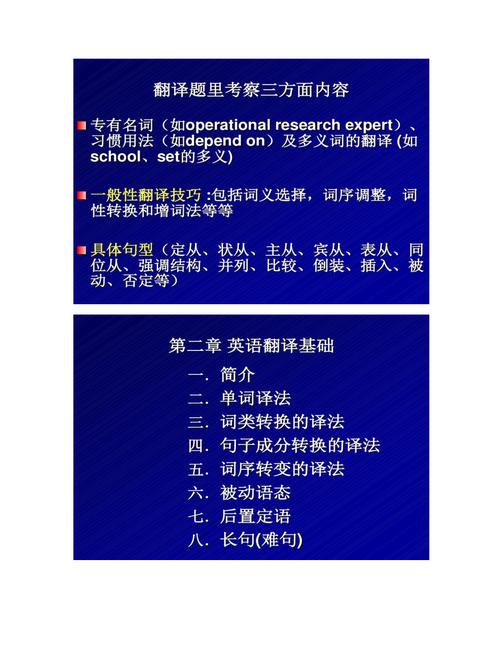```html
Introduction to Technology TranslationIntroduction to Technology Translation
Technology translation, also known as technical translation, is a specialized field within the broader domain of translation services. It involves the accurate and culturally appropriate translation of technical content from one language to another. This field is crucial in today's globalized world where businesses, organizations, and individuals often need to communicate technical information across linguistic and cultural barriers.
Technology translation goes beyond simply converting words from one language to another. It requires indepth knowledge of both the source and target languages, as well as expertise in the specific technical subject matter being translated. Key elements of technology translation include:
- Technical Expertise: Translators must have a solid understanding of the technical concepts, terminology, and jargon relevant to the content they are translating. This often requires specialized training or experience in fields such as engineering, IT, medicine, or manufacturing.
- Linguistic Proficiency: Translators need to be fluent in both the source and target languages, with a deep understanding of grammar, syntax, and vocabulary. They must also possess strong writing skills to ensure the translated text is clear, concise, and accurately conveys the original meaning.
- Cultural Sensitivity: Effective technology translation takes into account cultural differences and nuances that may affect how technical information is understood or interpreted. Translators must adapt the content to suit the cultural context of the target audience while maintaining accuracy and clarity.
- Subject Matter Knowledge: Translators often specialize in specific technical fields, allowing them to accurately translate complex technical documents such as user manuals, software documentation, engineering specifications, and scientific research papers.
Technology translation presents several challenges that translators must overcome to ensure the quality and accuracy of their work. Some common challenges include:
- Complex Terminology: Technical content often contains specialized terminology and jargon that may not have direct equivalents in the target language. Translators must carefully research and adapt these terms to ensure they are accurately translated and understood.
- Localization: In addition to linguistic translation, technology content may require localization to adapt it for specific regional preferences, cultural norms, or regulatory requirements. This may involve modifying images, units of measurement, date formats, or other elements to suit the target audience.
- Consistency: Maintaining consistency in terminology and style is essential, especially for largescale translation projects or documents with multiple authors. Translators often use specialized tools such as translation memory software to ensure consistency across translations.
- Accuracy: Technical content must be translated with precision to avoid errors or misunderstandings that could have serious consequences. Translators may consult subject matter experts or reference materials to verify the accuracy of their translations.
To ensure the success of technology translation projects, it is important to follow best practices that maximize accuracy, efficiency, and quality. Some key best practices include:

- Collaboration: Foster open communication and collaboration between translators, subject matter experts, and project stakeholders to clarify requirements, address questions, and resolve issues promptly.
- Quality Assurance: Implement robust quality assurance processes, such as proofreading, editing, and review by bilingual experts, to identify and correct errors before finalizing translations.
- Use of Technology: Leverage translation management systems, terminology databases, and other technology tools to streamline the translation process, improve consistency, and facilitate project management.
- Continuous Learning: Stay abreast of developments in both the technical and linguistic aspects of technology translation through ongoing training, professional development, and participation in industry events and forums.
Technology translation plays a vital role in facilitating communication and knowledge exchange across linguistic and cultural boundaries in the globalized world of today. By combining linguistic proficiency with technical expertise and cultural sensitivity, translators ensure that technical content is accurately translated and effectively communicated to diverse audiences worldwide.
